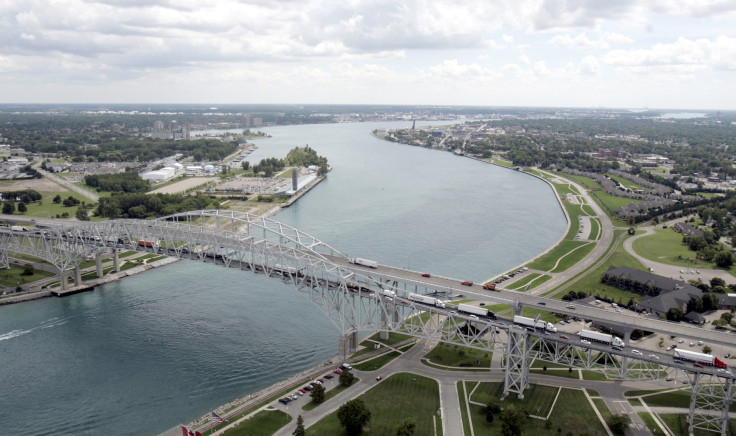Amid Water Crisis Fears, Petition Against Great Lakes Nuclear Waste Storage Plan Reaches 92,000 Signatures

A petition launched in Canada was delivered to Ottawa lawmakers this week to urge them to reject a proposal to store nuclear waste in an underground vault near the Great Lakes. More than 92,000 people signed the petition, citing fears that a spill could contaminate the drinking water from the water source, reported Agence France-Presse.
The petition, which comes in at 6,000 pages, rails against local utility company Ontario Power Generation, which wants to store the waste in a deep limestone vault that will be drilled beneath an operating nuclear power plant. The Canadian environment minister received the petition this week and is expected to review the Ontario Power Generation's proposal in March. An independent review panel recommended government officials approve the project, but supporters of the petition say the risk of contamination is too large.
"No scientist, nor geologist can provide us with a 100,000-year guarantee that this nuclear waste dump will not leak and contaminate the Great Lakes," Beverly Fernandez, who is behind the campaign, told AFP. "So when we found out that OPG was trying to locate this nuclear waste right besides the Great Lakes — the drinking water for 40 million people in two countries — we felt compelled to do something."
The Ontario Power Generation has assured that there is no threat to public health.
"Public health and safety will be protected," Ontario Power Generation spokesman Neil Kelly told the Agence-France Presse.
Please sign this petition if you don't want nuclear waste buried by the great lakes. https://t.co/2sKhQrPTLC
— Greenpeace Ottawa (@GPOttawa) January 7, 2016The petition comes just weeks after a state of emergency was called in Flint, Michigan, where it was found that the water became contaminated when the city switched water supply companies in April 2014. The economically depressed city had previously received its water supply through Lake Huron but changed providers to receive water supply through the Flint River in order to save money. High levels of iron in the river were found in the river after residents complained of its strange taste and smell. As a result of the crisis, incidents of children with elevated lead levels in their blood doubled.
© Copyright IBTimes 2024. All rights reserved.












